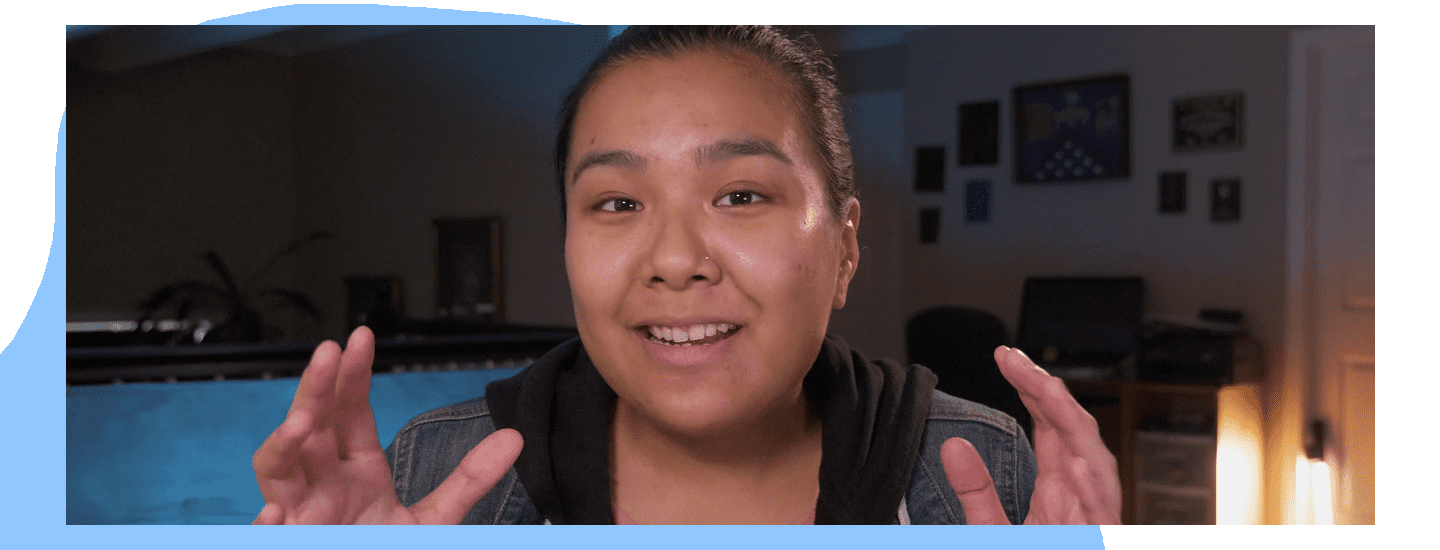Building a portfolio of your creative work with no experience seems almost impossible. You need experience to get the job, but you need the job to gain experience. This seems like the biggest paradox for any creator that’s trying to turn their passion into a career. I’m going to give you the biggest piece of advice that I have when it comes to building your portfolio. Even if you’re just a beginner.
Just start creating
The easiest way to start building a portfolio, even if you have no experience, is to do things for free. I know a lot of creators don’t like doing this, and I do believe that creators should be paid a fair amount. But if you have absolutely no experience in the creative field that you’re trying to go into, doing things for free is the easiest way for you to build your skillset. Also, I should point out that doing projects for free doesn’t necessarily mean that you need to do things for other people or businesses. The easiest way to get started is to work on your own projects. Honestly, it’s a lot better for us to practice and mess up on our own work than to potentially mess up a client’s job.
If you’re a photographer, grab a group of friends and ask them to be your models. Ask your family members, your aunts, your uncles, your cousins if you can take their family portraits. If you’re a videographer, start a YouTube channel and make videos for yourself. Or film and edit any family events that you can go to or any vacations that you go on. The most important thing to keep in mind is that you need to keep creating. Not only will this show where your skills currently lie as a creator, but it will also show you how determined you are to get into your desired creative field.
Now, with this, you’re going to build a small portfolio. How exactly are you going to grow and expand this?
Don’t be too picky
If you’re a beginner, you want to try to get as much creative work as you can regardless of the industry that it’s in. Not only will that help you build your portfolio, that will also help you expand and diversify the type of work that you can provide for future clients. For instance, I initially built up my skills as a photographer, videographer, and graphic designer. This year, I started diving into web design and development. So the more educated and diverse you are when it comes to your creative work, the more likely you’ll be able to book jobs and expand your portfolio.
Create for the industry you want to enter
If you want to go into the fashion industry or the beauty industry, take product photos or make shirt designs. If you want to go into the food industry, record and edit 60-second videos of the food that you cook that day. If I were to hire a wedding photographer, for instance, I’d feel comfortable hiring someone who already has experience with wedding photography.
Use social media to your advantage
A lot of creators treat their YouTube channel or their Instagram account as their portfolios. For me, my YouTube channel, my Instagram account, started out as my portfolio. I actually got hired for some freelancing gigs because of some of the videos and edits that I posted. You can also DM people on Instagram, join Facebook groups, and message and interact with people on Twitter, to see if they need freelance work. A lot of people say that it doesn’t work. But personally, that’s how I’ve been getting a lot of my freelance work over the years.
At the end of the day, you have to show the person or business you’re pitching that you’re going to be a valuable asset to their life. And it’s tough to do that if you don’t have any sort of portfolio to present them. Trust me. Three years ago, I was working full-time while trying to build this freelancing career, and I was struggling. But since I’ve been able to build up my portfolio, I’ve been winning clients and expanding my business.



